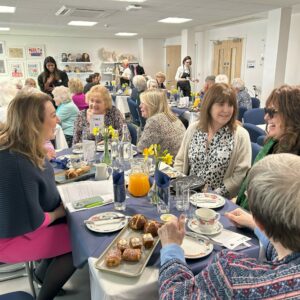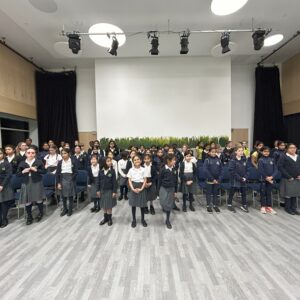News & Events
VE Day Celebrations
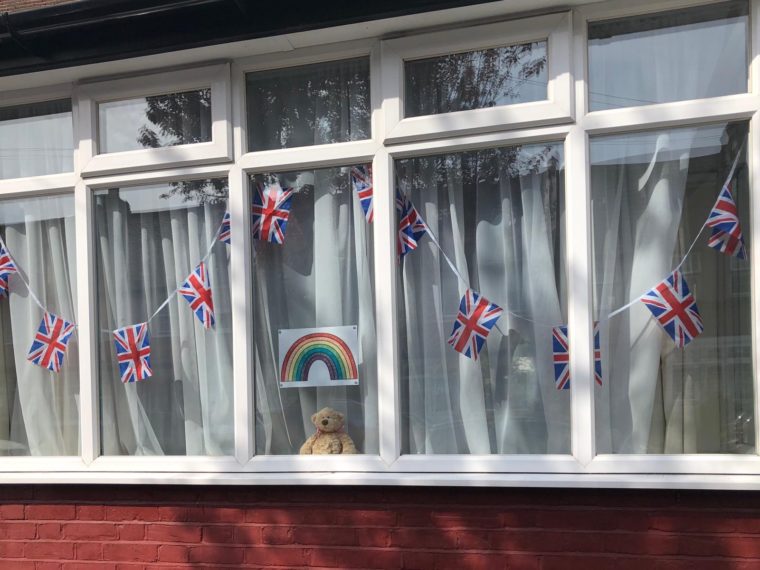
We’ve seen so many lovely photos from your VE Day celebrations last week – including lots of socially distanced street parties.
Charlie played Elgar’s ‘Chanson de Matin’ and ‘Somewhere Over The Rainbow’ in her street! She and her family dressed up (Professor Cook in blues as a reserved occupation) and broke out the pre-war china for tea, scones (made by Charlie), and Victoria sponge.
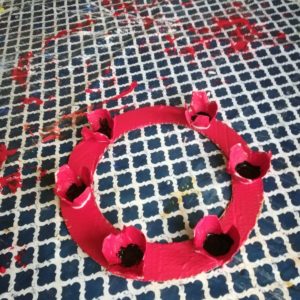
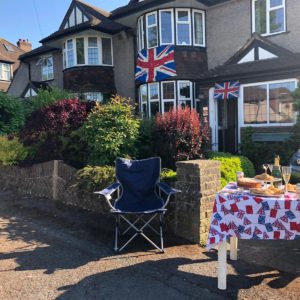
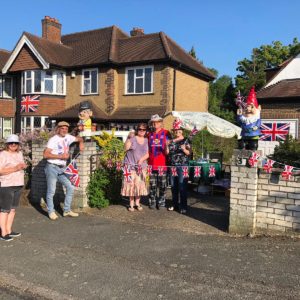
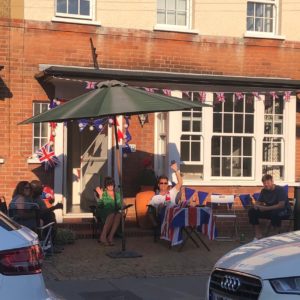
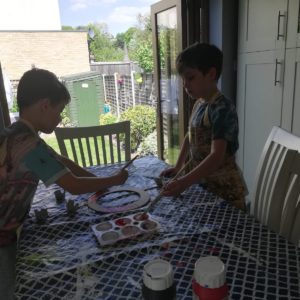
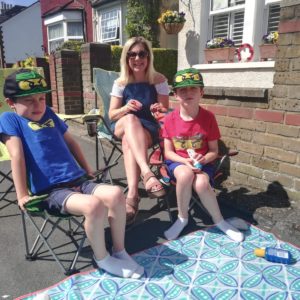
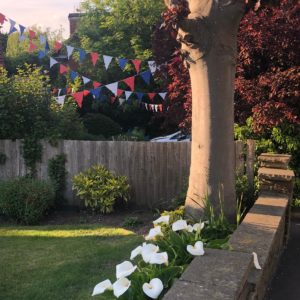
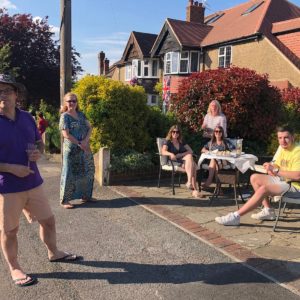
Mrs Raja also read out this incredible Croydon High alumna’s memories of VE Day in Assembly last week:
“The day arrived and the whole country was rejoicing that Victory in Europe had been achieved. However, in our home, which at that point was in Lancashire living with my grandfather, there was frustration too as my father was in India with the RAF and the war against Japan continued.
My mother, younger sister and I were living in a little town, not far from Blackburn in Lancashire, called Great Harwood. We had moved from Shirley, Croydon in the middle of the Battle of Britain in 1940 when I was a few months old to join my grandfather. He was managing a factory making OXO cubes having been sent there by the parent company Fray Bentos from their offices in London. My father, working on the Stock Exchange, gave up his job when he decided Croydon was too dangerous with The Battle of Britain raging nearby and joined a factory in Blackburn as a ‘progress chaser’. This factory was working 24 hour days to produce what was needed for the war effort so both men were doing jobs that were totally alien to them but that’s what you do in a crisis.
Great Harwood was essentially a cotton mill town but the OXO factory was a popular place of employment as it was cleaner and much, much quieter than the cotton mills. I visited both frequently as a small child. My grandfather would take me to the OXO factory to give my mother a break when she had my next sister a year after we moved up north. I was his first grandchild and so he liked to show me off and his secretary would let me use the hole punch to make confetti for my dolls’ imaginary weddings. The first word I learned to write was OXO after tracing my finger in the fat white letters that are still part of their logo.
He would then take me to meet Mrs Mills, our cleaning lady who worked a shift in the mill before she came on to us to do the ‘rough’ as my mother put it. The rough included whitening the front door step – a matter of great social pride among those hard-working ladies of Lancashire – and scrubbing floors, this after working hard spinning cotton onto big spools for many hours and lip-reading conversations with her friends above the incessant clatter of the machinery, but she never complained and her rosy face was always smiling. We adored her.
I went to school in September 1943 at three and a half. As many mothers were working in the mills to replace the men away in the forces, full time nursery provision had been set up with a lovely teacher called Mrs Forsyth and an assistant I think. Although I made a fuss on the first day and screamed and stamped my feet, I was secretly intrigued about school, although annoyed that my two-year-old sister was going home.
I soon decided that school was much more interesting than being at home although they really hadn’t much idea of what to do with nursery age children so we had a slightly watered down infant curriculum (I am by training an infants’ teacher!). The only real difference was the slower pace, the hot cocoa at morning break heated on the stove in the corner and the ‘rest’ after lunch when little camp beds, a blanket and a pillow were put out and we were supposed to sleep. Many pillow fights ensued!
The war ticked on and dad, having been called up in 1942 joined the RAF like his younger brother. He did his basic training in Wales and came home once on embarkation leave in 1943 before he disappeared to India for three long years. He wrote to me every week and sent me funny drawings of him repairing aircraft or flying in them. It was a great incentive for me to learn to read and write and in March 1945 he wrote an aerogram, which I still have, commenting on what a good letter I wrote now – I was just under five. Great credit to St Bartholomew’s C of E Primary School’s teaching.
On the day the war was declared to be over in Europe we all listened to the Prime Minister on the radio, or the wireless as we called it then, and many patriotic tunes were played, especially relating to the armed services. My mother made my sister and me stand to attention and salute when the RAF march was played. She then handed me the paper and asked me to read out some of the front page. I still have it, carefully kept after she died, and I was quite proud to note that it was the Daily Telegraph – quite difficult reading for a five-year-old.
Later that day there was the excitement of going to a street party, not in our road which was a fairly main one but in a quiet street between two rows of terraced houses with tables laid out all down the middle. There were sandwiches, jelly, cake and squash to eat and it looked just like the L S Lowry painting called VE Day. When I first saw that picture it looked so like my vision of my street party that I thought Lowry must have been there but I think that scene was replicated all over the country and certainly all over Lancashire where there are many such streets.
It was May and the evening light was still quite bright as we walked down the hill. Earlier, I had asked my grandfather whether we would be up until midnight and he said that we would. I was waiting with bated breath to see the fairies at the bottom of the garden, which he had assured me only appeared when the clock struck 12, but I kept that thought to myself.
On the way I spotted a big bonfire, blazing away, with a figure on top just catching fire so I said to my mother, ‘What’s that?’
‘Oh! That’s Hitler,’ she replied casually.
Now, I knew Hitler was a bad man but burning him on a bonfire in Great Harwood seemed rather cruel so I fell silent and must have looked upset when she realised that I had taken her statement literally.
‘It’s just like Guy Fawkes,’ she added hastily, and then remembered that since the beginning of the war, before I was born, there had been no fireworks or bonfires on November 5th or, indeed, any other night.
When all had been explained to my satisfaction I was able to calm down and enjoy the celebrations. The food was quite simple but enjoyable and we played games that children still love today like Pass the Parcel. Everyone was so happy that life could begin to return to normal, though I think few realised how tough that would be and how long it would take. My father didn’t arrive back from India until April 1946.
However, that day, when we arrived home to 51 Park Lane, I asked my grandfather if it was midnight and he said it was (but I have no idea if this was true). I demanded to be taken down the garden to see the fairies. Needless to say, there were none and I think that was when I began to realise that adults don’t always tell the truth but they are quite good at fairy tales!”
Christine Hogh (nee Smith) April 2020
Croydon High School Class of 1958
More news
Awards and Celebration
GDST Creative Writing Year 12 & 13 – highly commended
Co-curricular
